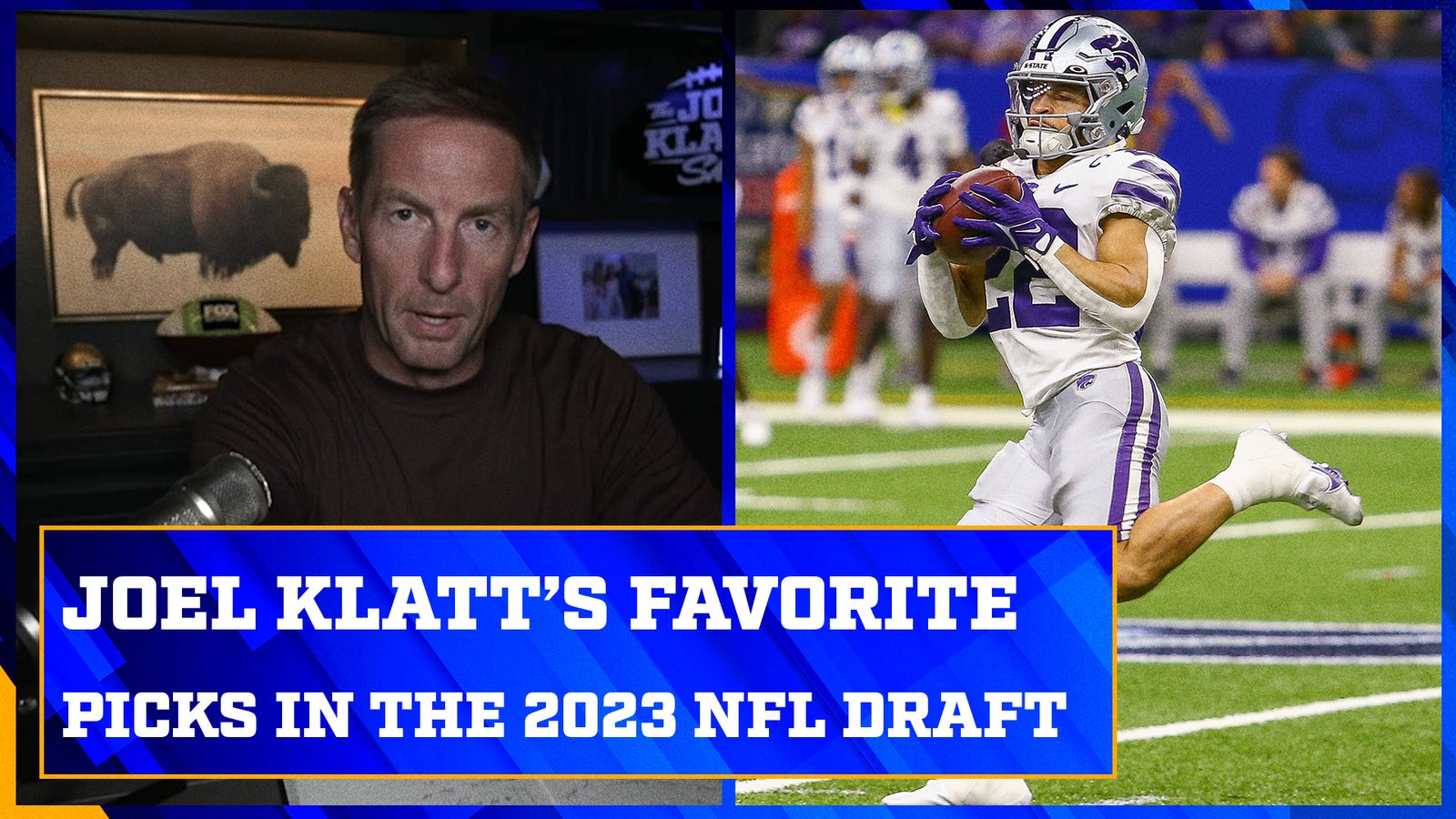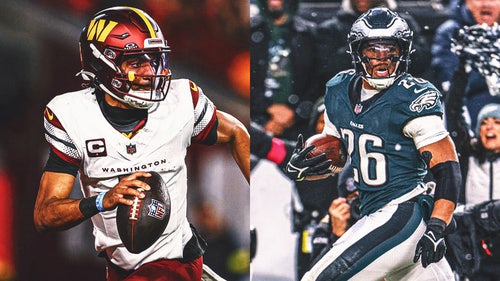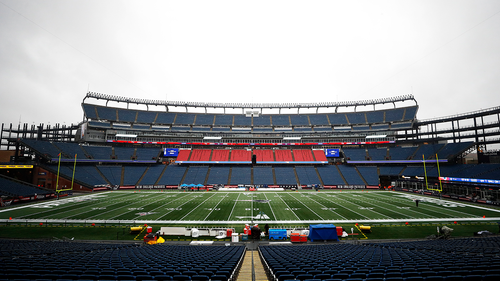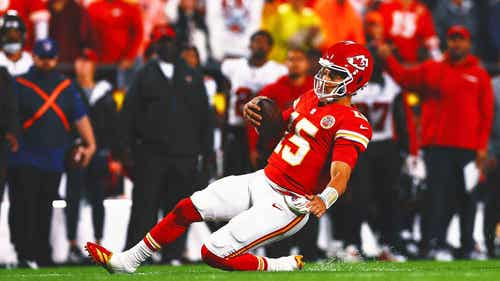
The Ryan Tannehill dilemma: Why Titans should — and shouldn't — move on from the QB
Ryan Tannehill is the Titans' starting quarterback. Malik Willis is the top backup. Will Levis is the No. 3 option.
For now, that's what Mike Vrabel is saying, in the wake of Tennessee trading up eight spots in the second round of the 2023 NFL Draft — from No. 41 to 33 — to draft Levis, who slipped out of the first round.
"What I've told them is whatever happens after that is up to the players," Vrabel said last week of the quarterback pecking order. "That's what it has always been here. That's what we always want it to be."
But once the season gets going, it would make sense for Levis to be the top backup behind Tannehill. Let Levis learn behind Tannehill for a year, let Tannehill walk next offseason and hand the reins to Levis for 2024.
There's also a world where the Titans look to accelerate that process, trading or releasing the 34-year-old Tannehill, who's entering the last year of his contract.
He carries a $36.6 million cap number for 2023, second-highest in the NFL, and is due $27 million in base salary. Tennessee would have to eat $18.8 million in dead money by trading or releasing Tannehill with a pre-June 1 designation, but would save $17.8 million against the 2023 salary cap.
Let's break down why the Titans should, and shouldn't, move on from Tannehill ahead of the 2023 season.
Joel Klatt's favorite picks in the 2023 NFL Draft and why Will Levis fell to the second-round
Why Titans should trade Tannehill
1. Find out what you have in Levis as quickly as possible
Drafting a quarterback within the top two picks of the second round, where you traded up eight spots, is a clear sign you hope he can become your future. And general manager Ran Carthon on Friday said Levis would have been in consideration at No. 11 overall had the Titans' eventual pick — Northwestern's Peter Skoronski — been off the board. So Levis represented first-round value for Tennessee.
His decision making and efficiency were scrutinized from his play at Kentucky, where he threw 23 interceptions over the last two seasons. But Vrabel noted that the team believes his 65% completion rate for the Wildcats across two seasons should've been "closer to 70%" because of what they estimated to be about 30 drops from his pass catchers.
"Will is a diligent worker, extremely smart, extremely bright," Carthon said. "Puts a lot of time in to be a good quarterback, so you appreciate his ability to pick up concepts and things quickly. And just who he is, he's hard-wired. He's tough. And his most recent offensive coordinator, Rich Scangarello, I had experience with in San Francisco so I kind of knew how he operated within that system.
"When we brought him here, our coaches and our scouting staff, we had good interactions with him," Carthon said, "so it just made it easy for us."
Levis will be 24 when his rookie season starts, older than the typical first-year quarterbacks (for comparison, the Texans' C.J. Stroud and Colts' Anthony Richardson will be 21 when the 2023 season starts; the Panthers' Bryce Young will be 22). He also won't have a fifth-year option in his contract as a second-round pick. Both factors give the Titans incentive to see what they have in Levis sooner rather than later.
The sooner you know what you have in Levis, the quicker you can pivot off him if he isn't the answer. Like how — in an extreme case — the Cardinals traded Josh Rosen just a year after using a top-10 pick on him, and selected Kyler Muray with the No. 1 overall selection in the 2019 draft.
2. Titans not positioned to be major contenders in 2023
Tennessee, which ranked 28th in scoring last season (17.5 points/game), still has a bad offense on paper. It has gotten younger and much more athletic on the offensive line, which could pay dividends in the run game and in pass protection. But the team still boasts one of the worst wide receiver rooms in the NFL.
Titans wide receivers accounted for just six receiving touchdowns and 1,595 receiving yards combined last season — second- and third-worst in the league, respectively, according to Next Gen Stats. After releasing Robert Woods, the Titans have only added a seventh-round draft pick (Tennessee-Martin's Colton Dowell) and signed veteran Chris Moore. The 29-year-old Moore has a career-high of 548 receiving yards, which came last season and would've led Tennessee by 21 yards.
The Titans' defense should be strong (again), but the offense inspires little confidence with the draft and the bulk of free agency in the books.
Tennessee doesn't look like a team equipped to make a 2023 run with Tannehill, running back Derrick Henry and other veterans leading the way.
If the Titans feel they're going to win eight or fewer games in the upcoming season, the team would be best served rolling the dice with Levis.
3. Draft capital from Tannehill trade is needed
Instead of losing Tannehill for nothing in the 2024 offseason, the Titans could trade him to recoup a draft pick or two.
Tennessee could use those extra selections. It currently has just five picks in the 2024 draft — a first, second, fourth and two sevenths — and is not projected to earn a compensatory pick for next year, according to Over The Cap.
Why Titans should keep Tannehill
1. Tennessee can pay to be patient
Just as one can argue that an early-round quarterback should be on the field immediately, there is something to be said about letting him sit.
Patrick Mahomes sat behind Alex Smith for a year, starting just one game as a rookie. Lamar Jackson and Tua Tagovailoa didn't become full-time starters until November of their rookie year, Hurts not until December of Year 1.
Having your young quarterback sit at the beginning doesn't necessarily mean they're not ready to play, but if the team has a viable veteran it wants to run with while in win-now mode, there's an argument for patience. The Titans might feel that way, even as they've clearly had a hard reset with their roster.
2. Offense needs to be built up
Willis was not ready to be an NFL quarterback last season, but it didn't help that he had shoddy pass protection and one of the league's worst receiver rooms to work with when he was thrown in the fire with Tannehill sidelined due to injury. The Titans allowed a 39% pressure rate last season, worst in the NFL, and didn't have a receiver touch 600 yards.
In 2023, Tennessee will be integrating several new faces on the offensive line. There's been no real improvement to the receiver room. It could be a rough year for the Titans again offensively. Throwing Levis into that situation could be detrimental to his growth and confidence.
So … should the Titans consider moving on from Tannehill?
Yes, it should be a strong consideration. But Vrabel won't hand out roles that aren't earned. Levis will need to earn the coaches' trust with his embrace of the playbook, running the offense and performance on the field.
It may be hard to trade Tannehill now because most teams have their quarterback plans set. If the Titans don't want to release him for nothing, it would make sense to wait until training camp or the preseason, when another team may find itself in need of a quarterback due to performance and/or injury.
The Falcons or Commanders could be teams to watch.
If 2022 third-rounder Desmond Ridder doesn't perform as hoped, Atlanta may have real interest. Tannehill played the best football of his career when Falcons coach Arthur Smith was the Titans offensive coordinator from 2019-20.
Washington has one of the league's most unstable quarterback situations. Coach Ron Rivera said Sam Howell, a 2022 fifth-round pick, would most likely enter the offseason as QB1. The Commanders also have veteran Jacoby Brissett on a one-year, $8 million deal.
The Titans could also wait to see how the beginning of the 2023 season plays out before deciding on Tannehill. If they find success early, that would be a reason to stick with Tannehill and make one last run with a revamped offense around star running back Derrick Henry, who's also in the last year of his contract.
If the Titans start the season rough? It's Levis time.
"There's a million scenarios that we'll have to work through," Vrabel said of the brewing quarterback competition.
Ben Arthur is the AFC South reporter for FOX Sports. He previously worked for The Tennessean/USA TODAY Network, where he was the Titans beat writer for a year and a half. He covered the Seattle Seahawks for SeattlePI.com for three seasons (2018-20) prior to moving to Tennessee. You can follow Ben on Twitter at @benyarthur.











